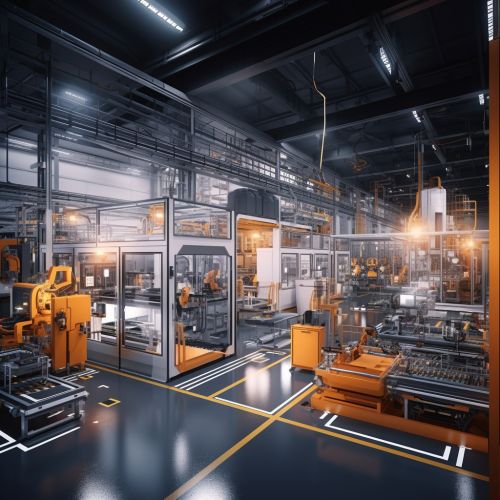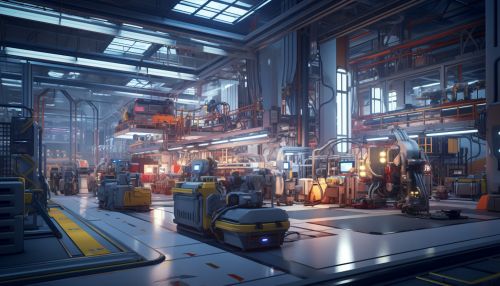Artificial Intelligence in Manufacturing
Overview
Artificial Intelligence (AI) is a rapidly evolving field that has found application in numerous sectors, including manufacturing. AI in manufacturing refers to the use of machines that mimic human intelligence to perform tasks related to production, quality control, maintenance, and other processes. This technology has the potential to revolutionize the manufacturing industry by increasing efficiency, reducing costs, and improving product quality.


History of AI in Manufacturing
The concept of AI in manufacturing is not new. The idea of machines that can learn and make decisions has been around since the early 20th century. However, it was not until the late 20th century that the technology began to be applied in manufacturing settings. Early applications of AI in manufacturing included automated quality control systems and predictive maintenance tools. Over the years, the technology has evolved and become more sophisticated, leading to its current wide-ranging applications in the manufacturing industry.
AI Technologies in Manufacturing
There are several key technologies associated with AI in manufacturing. These include machine learning, robotics, computer vision, and natural language processing.
Machine Learning
Machine learning is a subset of AI that involves the development of algorithms that can learn from and make decisions based on data. In manufacturing, machine learning algorithms are used to predict equipment failures, optimize production processes, and improve product quality.
Robotics
Robotics is another key technology in AI manufacturing. Robots equipped with AI capabilities can perform complex tasks with high precision and speed. They can also adapt to changes in the production environment, making them highly versatile.
Computer Vision
Computer vision involves the use of AI to interpret and understand visual data. In manufacturing, computer vision is used for quality control, where it can detect defects in products that are difficult for human inspectors to spot.
Natural Language Processing
Natural language processing (NLP) involves the use of AI to understand and generate human language. In manufacturing, NLP can be used to analyze customer feedback, enabling manufacturers to improve their products based on customer needs and preferences.
Benefits of AI in Manufacturing
The use of AI in manufacturing offers several benefits. These include increased efficiency, reduced costs, improved product quality, and enhanced safety.
Increased Efficiency
AI can automate various manufacturing processes, reducing the time and effort required to produce goods. This can lead to significant increases in efficiency.
Reduced Costs
By automating processes and improving efficiency, AI can help to reduce manufacturing costs. Additionally, AI can help to reduce waste by optimizing resource usage.
Improved Product Quality
AI can improve product quality by automating quality control processes and detecting defects that human inspectors might miss.
Enhanced Safety
AI can enhance safety in manufacturing environments by automating dangerous tasks and monitoring for safety hazards.
Challenges and Limitations of AI in Manufacturing
Despite its many benefits, there are also challenges and limitations associated with the use of AI in manufacturing. These include the high cost of implementation, the need for skilled workers, and concerns about job displacement.
High Cost of Implementation
Implementing AI in manufacturing can be expensive. This includes the cost of purchasing and maintaining AI-enabled equipment, as well as the cost of training employees to use the technology.
Need for Skilled Workers
The use of AI in manufacturing requires skilled workers who understand the technology and can use it effectively. This can be a challenge in regions where there is a shortage of such workers.
Concerns About Job Displacement
There is concern that the use of AI in manufacturing could lead to job displacement, as machines take over tasks previously performed by humans. However, it is also argued that AI will create new jobs by generating demand for skilled workers.
Future of AI in Manufacturing
The future of AI in manufacturing looks promising. With advancements in technology, it is expected that AI will become increasingly integrated into manufacturing processes, leading to further improvements in efficiency, cost savings, and product quality.
